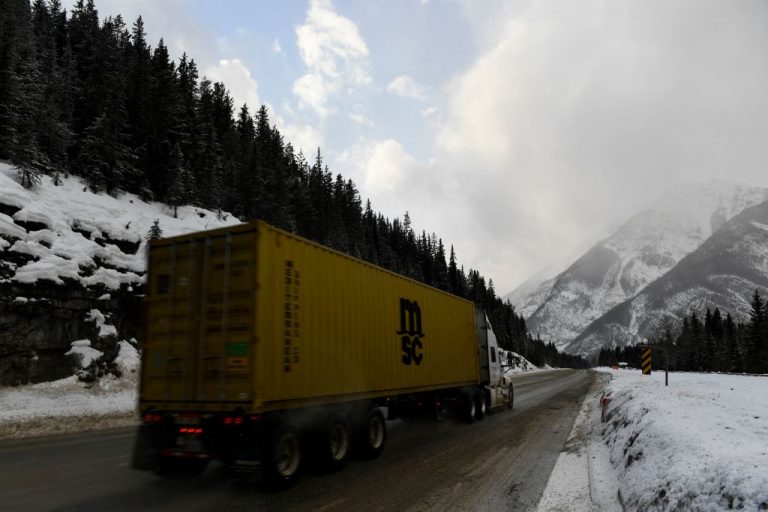Canada may lose as many as 30,000 additional truckers in an industry already plagued by a staffing shortage as a result of pending mandatory vaccination edicts, putting the country’s supply chain in jeopardy, warns an industry group.
The Canadian Trucking Alliance (CTA), an industry lobby group, gave the figures in a Dec. 12 article published on its website after both the Canadian and United States governments announced plans to enact a vaccine passport for cross-border truckers.
The edicts loom large as they are scheduled to come into force in January.
“The current challenges faced by the supply chain, which include an acute and growing truck driver shortage, will worsen significantly if the Government of Canada moves ahead to mandate a vaccine policy for the trucking industry in early 2022,” reads the article.
The CTA estimates that the industry, which it calculates is already short 18,000 drivers, would lose an additional 15,000 to 30,000 personnel who would either exit the trade completely or vacate their employ with licensed carriers for underground companies they refer to as “Driver Inc” companies.
Success
You are now signed up for our newsletter
Success
Check your email to complete sign up
RELATED ARTICLES
- California Supply Chain Crisis Could Be Rooted in Union Labor Dispute
- Vaccine Mandate Staffing Shortages Left Children’s Hospital Unable to Handle Waukesha Parade Attack
- Six Shots for Full Vaccination? Booster Now and Three More Jabs of New Omicron Vaxx in March: BioNTech CEO
Driver Inc companies are described by the Alliance as “a growing subset of carriers operating in the underground economy, who sidestep safety, labour and environmental rules and who routinely misclassify employee truck drivers as contractors to avoid tax and labour obligations, like the proposed vaccine mandate.”
Both smaller businesses and rural areas will be the hardest hit by the resulting supply chain crisis, cautions the Alliance, because “some trucking companies will have no choice but to prioritize customers based on size, frequency of shipping, driver treatment, and difficulty of freight handling.”
The CTA isn’t the only industry group expressing its concerns. On Dec. 17, the Canadian Manufacturers & Exporters released a statement calling on governments on both sides of the border to postpone vaccine mandates over concerns that “these measures will imperil integrated North American production and dramatically worsen current supply chain disruptions.”
“Canadian manufacturers rely on cross-border trucking to get key materials into their plants, to maintain integrated North American manufacturing, and to ship their goods to the US market. The trucking industry moves close to 70 per cent of the $648 billion Canada-US trade. This includes Canada’s food supply and critical goods,” read the statement.
A Dec. 13 release by the Canadian Chamber of Commerce echoed a similar sentiment as it said edicts would “seriously aggravate the existing truck driver shortage and lead to price increases that will hurt the Canadian economy and consumers.”
The CTA noted in a Dec. 22 article that despite the existing 18,000 driver deficit before vaccine mandate impact comes to life, demand is also at a multi-year high.
November load volumes were up 69 percent year over year and 32 percent over October’s posting.
The article also noted that loads heading to the United States were up 113 percent year over year and 28 percent from October, while trucks importing from the U.S. had also increased 46 percent both month over month and year over year.

















